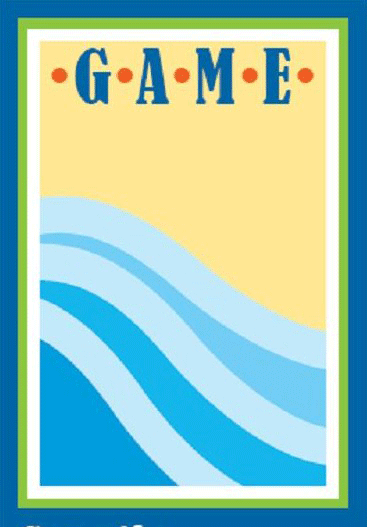In 2021, GAME invited members of the National Marine Educators Association’s (NMEA) Ocean Literacy Committee to collaborate with members at our annual conference to discuss the updates made to the principles and share the Ocean Literacy Scope and Sequence for Grades K-12. To round out the conference, GAME members led activities that support each of the seven Ocean Literacy Principles to help make the connection back to the classroom. This page shares presentations, activities and resources from that shared experience. Ocean Literacy is an understanding of the ocean’s influence on you—and your influence on the ocean. There are seven Essential Principles of Ocean Literacy comprising 45 Fundamental Concepts. The Ocean Literacy Framework comprises the Ocean Literacy Guide, the Ocean Literacy Scope and Sequence for Grades K–12, and the Alignment of Ocean Literacy to the Next Generation Science Standards (NGSS). This 3-part framework presents a vision of an ocean-literate society and outlines the knowledge required to be considered ocean literate.
More information about the seven principles, framework, and scope and sequence, please visit the National Marine Educators Association website at - https://www.marine-ed.org/ocean-literacy/overview.
To see how the Ocean Literacy Framework connects to the Georgia Standards of Excellence, please check out this ppt and matrix created by GAME Board to assist our members:
|
Keynote Address Ocean Literacy Principles Overview: NMEA Ocean Literacy Committee Ocean Literacy Principle 1: The Earth has one big ocean with many features. OLP 1 Introduction : Diana L. Payne and Angela Bliss Activity Sheets (PDF Downloads): Riding the Stormwater Wave.pdf Watersheds_NPS.pdf OLP 2 Introduction: Diana L. Payne and Melissa Rettig-Palmer OLP 2 activity - sand exploration.pdf: Melissa Rettig-Palmer Ocean Literacy Principle 3: The ocean is a major influence on weather and climate. OLP 3 Introduction: Catherine Halversen and Cynthia Dean GAME OLP 3 Activity presentation -Ocean as a major influence on weather and climate.pdf: Cynthia Dean and Catherine Halversen GAME OLP 3 Activity - Ocean Influence on Weather and Climate.pdf: Cynthia Dean Ocean Literacy Principle 4: The ocean makes Earth habitable. The introduction of this principle was included in the Keynote Address. OLP 4 Activity: Events in Earth's History cards (1).pdf OLP 4 Activity: Slides for Earths History.pdf OLP 4 Activity: Teachers Guide for Earths History from OSS 6_8.pdf Ocean Literacy Principle 5: The ocean supports a great diversity of life and ecosystems. OLP 5 Introduction: Sarah Schoedinger and Dionne Hoskins-Brown OLP 5 Activity: Dionne Hoskins-Brown Ocean Literacy Principle 6: The ocean and humans are inextricably interconnected. OLP 6 Introduction: Catherine Halversen and Katy Austin-Smith OLP 6 Activity - Water Shapes Our Planet: Katy Austin-Smith et al. Katy demonstrated the Crumpled Paper Watershed activity from Lesson 4: “Watersheds and Wetlands” and reviewed the “Final Activity: Taking Action.” Ocean Literacy Principle 7: The ocean is largely unexplored. OLP 7 Introduction: Susan Haynes and Kim Morris-Zarneke OLP 7 Activity Which Robot When: NOAA Ocean Exploration OLP 7 Activity Simple Machines: NOAA Ocean Exploration OLP 7 Activity Resources: auv-fact-sheet.pdf; rov-fact-sheet.pdf; exploration-vehicle-summary-sheets.pdf
|
